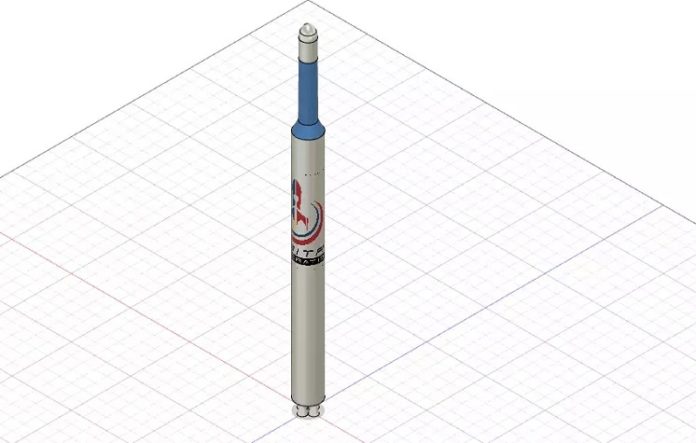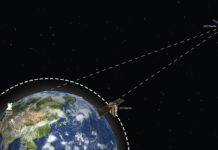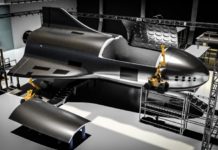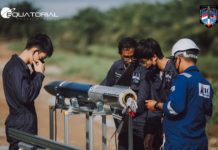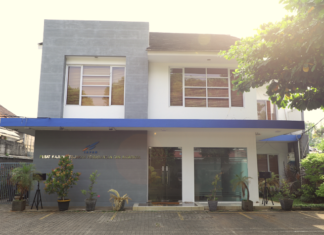Last week, the Philippines’ first rocket company Orbital Exploration Technologies announced its plans to develop a suborbital two-stage rocket, OrbitX Haribon SLS-1, powered by a propellant of renewable kerosene derived from waste plastics (OrbitX RP-2).
Intrigued, SpaceTech Asia spoke the startup’s founder Dexter Baño Jr. on why he started Orbital Exploration, the company’s plans, and the Philippine space industry.
When was Orbital Exploration Technologies founded? What made you start the company?
OrbitX was founded on June 2, 2019 right after I graduated from Quezon City University. My girlfriend, Angelica Escarnuela (this woman right here is the primary moving factor) encouraged me to pursue this scary and risky venture which originally was just a non-profit hobby club for geeks. After receiving attention locally, I decided to make this a full-time career, considering also that we are a developing country and we need access to space tech especially since we are located in the Pacific Ring of Fire. I decided to assemble the team composed of Gen Zs from different professional and academic backgrounds.
Please tell us a bit about yourself and your team.
When I was a kid, I always wanted to pursue a scientific career. I want to be an astronaut or a doctor. But due to some circumstances of limited resources, and we also because do not have astronomy-related degrees here in our country, my mom told me to shut the front door and go into a state funded university. I studied business and founded and exited my first startup. I graduated with a Bachelor’s degree in Entrepreneurship. My professors told me that I am the best student that they have ever had but, I do not think it is true.
My team is composed of researchers and engineers (mechanical engineer, aerospace engineer and chemical engineer). We also have another successful startup founder, a former designer from a major motor company, and an IT expert.
Could you explain what OrbitX RP-2 is all about? What gave you the idea to use waste plastics?
We have a global waste problem. At the same time, people are complaining we are spending too much on space without paying attention on climate change. So because of that, we decided to tackle this problem. We used a process called pyrolysis and we observed that the properties of that fuel are similar to rocket grade kerosene or RP-1. Solving two problems: sustaining earth and accessing space.
We also have another fuel currently in the research phase which is a methane fuel from algae. It is in partnership with Polytechnic University of the Philippines.
Could you please tell us more about OrbitX Haribon SLS-1? Will you be developing more launch vehicles at a later stage?
Yes! We have three immediate goals for our Haribon SLS vehicles:
- Provide cheaper, greener and highly sustainable launch provider for satellites and other payloads;
- Bring people to space (space tourism); and
- Solve the space junk problem.
Logically speaking, these challenges will require separate Haribons.
Currently, what stage are you at in the design/development process?
We are in Technology Readiness Level 4.
Could you tell us a bit about your funding, eg the $50k, as well as your partnerships?
We were funded pre-COVID by Genix Ventures through Michael Alexander Montoya, a US citizen (release affected by the pandemic). Our partnerships and affiliations include Space4Impact and Space Impulse, the Green Party of the Philippines, Polytechnic University of the Philippines and the Department of Environment and Natural Resources. We are currently competing in China-ASEAN New Smart City Innovation and Entrepreneurship Competition.
What are some of your long-term plans?
To become the global pioneer of waste to energy for space technology, and to be able to provide technologies that will benefit both earth and space in the long run. We want to be a major provider of cheap, green and sustainable space access to developing countries like the Philippines while preserving the earth.
Could you tell us a little about the Philippines NewSpace industry? Is the setting up of the Philippine Space Agency an encouraging step for space startups?
If you want to start a space startup here in the Philippines, please do not do that. I am telling you. We are not yet ready to cater to advanced and moonshot technologies as a country. We are still scratching the surface. Investments and infrastructure are not yet ready.
On the other hand, this [the space agency] is a good start. It is important to work on these things slowly. But if you want to build a space company here hoping for support and/or investments? It is still a no go. We want to be the test bed of our country that is the reason why we want to do this. We want to fail and learn so we can advice other space startups properly in the future.
What hopes do you have for the Philippine space industry ten years down the road?
I personally hope that the stigma of space being just a dream be removed or reduced locally. The real benefit of space is here on earth. I hope local investors will be more open to probabilities and avoid bullying/degrading deep tech startups like us (yes we experienced that). I want also to see the government removing barriers that prevent innovation. I hope they will support people like us with full passion and fund our projects directly without any intermediary institutions. Innovation must not be counted as graft and corruption.

